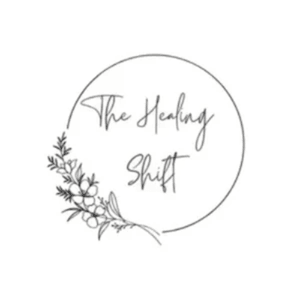Let’s Be Real
After twelve hours of alarms, charting, and emotional highs and lows, it can feel impossible to “turn off.” You walk out of the hospital, but the shift doesn’t always walk out of you.
That’s why having a post-shift ritual matters — not as another thing on your to-do list, but as a tiny bridge between nurse-you and human-you.
This isn’t about what you should do. It’s about what you can do — even on the nights you’re running on caffeine and autopilot.
Why a Ritual Helps
Skipping a wind-down keeps your nervous system in “go mode.” You might:
- Struggle to fall asleep, even when you’re exhausted.
- Replay moments from your shift.
- Scroll or snack for comfort but still feel wired.
- A small ritual sends your brain a simple message:
“The work is done. You’re safe. You can rest.”
Realistic Things You Can Do
You don’t need a spa day. You just need one small signal that says, off duty.
If You’re Completely Drained
- Change out of your scrubs right away. Even switching into cozy clothes tells your brain you’re done.
- Wash your hands, face, or hop in the shower — rinse the shift away.
- Sit quietly for two minutes. No meditation apps required — just breathe.
If You Have a Little Energy
- Play a feel-good song on your drive home — something that releases emotion, not just fills space.
- Stretch or roll your shoulders; release that charting posture.
- Make something warm to sip — tea, cocoa, or golden milk. The warmth helps your nervous system downshift.
~I usually brew a cup of this to settle myself
If Your Brain Won’t Stop
Jot a few thoughts in a notebook: “What stuck with me today?”
- Step outside for fresh air before bed — let nature reset your senses.
- Chat briefly with a friend who gets it, but don’t re-live every detail.
- Using a diffuser while chatting on the phone or writing can enhance the experience and boost productivity and does double the work
How I Found My Own Mini Ritual
When I worked 3–11's, I’d get home around midnight — exhausted but somehow still wired. I'd shower, hoping it would help me unwind, but it never really worked. I’d end up scrolling or eating, trying to settle my mind, but I couldn’t fall asleep.
One night, out of pure frustration, I washed my face and used a few drops of rosehip or turmeric oil before bed. I didn’t expect much, but the warmth, the scent, and those few quiet minutes actually helped my body realize the shift was over.
Now, that small ritual — pressing the oils into my skin and taking a deep breath — is my way of saying, “You’re home. You can rest.” (If you want to try it, any gentle rosehip or turmeric-infused face oil works — choose what feels soothing to you. This is what I use for tumeric oil and rosehip oil)
I also started choosing a spot on the side of the road on my way home to leave all the baggage from work—the emotions, the stress, the "what if I did this." Then, on my way back to work, I would just pick it up again.
Some nights, even a shower doesn’t feel like enough to wash away the day — but turning it into a mini reset helps. I like using eco-friendly, clean products that feel gentle after hours in scrubs.
Why These Small Things Actually Work
- They ground your senses. Warm water, scent, and touch tell your body it’s safe to rest.
- They add gentle structure. Predictability after chaos calms your system.
- They honor your effort. Taking even two minutes acknowledges everything you gave that day.
No Perfection Required
Some nights you’ll just collapse — that’s okay. Your ritual doesn’t have to look aesthetic or consistent; it just has to exist.
Even one small thing — changing clothes, turning on calm music, or lighting a candle — counts as care. You already have a ritual; this is just making it more intentional.
Let’s Share & Support Each Other
Every nurse unwinds differently. What’s one small thing you do after a shift that helps you reset? If you want a gentle way to put these ideas into practice, I created the Shift Reset Ritual — a 5–10 minute digital guide designed specifically for nurses and caregivers.
It’s not an app or a guided meditation — just a calm, realistic ritual you can use anywhere to help transition out of work mode and into rest.
Drop it in the comments — your ritual might be exactly what another tired nurse needs to hear tonight.
